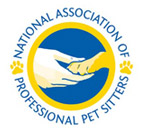 Have you ever seen your dog scoot his butt across the ground and wondered what the heck that’s all about?
Have you ever seen your dog scoot his butt across the ground and wondered what the heck that’s all about?
This will teach you what you never thought you wanted to know, but what is very important to your pet’s health.
You may have heard the words anal glands associated with this behavior.
Technically they are anal sacs which contain glands, but I won’t go into detail yet because I don’t want to scare you all away before the important stuff.
There is some question about the purpose of the fluid emitted by the sacs.
Some believe it is saturated with “scent-formation” that provides essentially the same information your dog gets by sniffing butts.
Some believe it contains territory marking scent and others believe it is released to lubricate the anus during defecation.
Whatever the reason for its existence, it is a fluid that needs be expelled from the body regularly, like urine, because it contains toxins.
The sacs contain copious amounts of sweat and oil produced by the respective glands contained within.
These make up a very stinky brownish fluid that is released through very small ducts which lead to the inner edge of the anus. 
If the fluid builds up it becomes more and more solid until it cannot pass through the ducts anymore, which is called impaction.
If the impacted sacs are not corrected quickly it can lead to infection and eventually abscess.
For most dogs the oily-like fluid is expelled naturally during defecation. However for approximately 12% of dogs, especially small breeds, this process does not occur naturally and requires intervention.
Some dogs have unusually small ducts and it makes it difficult for even the normal fluid to move.
Your veterinarian has the knowledge to manually express the sacs of fluid by gently pressing on them, an altogether unpleasant experience for everyone involved.
Frequent trips to the vet can become quite expensive.
If you’re looking for a way to help your buddy without dropping all your dough, you can start by increasing the fiber in your pet’s diet.
It is commonly believed that if your pup has to pass a large stool, large enough to expand the anus, the stool will push against the sacs releasing the fluid naturally.
Because some of you may be concerned about your pet’s comfortability during the big-poo process, let me calm your fears and tell you that dogs cannot get hemorrhoids. Also, in comparison to having icky anus toxins stuck in their body, a large poo has to feel quite pleasant.
A consistently high-fiber diet may be the solution to an occasional booty-scoot, but if your dog has had the scooting issue for a while it could be too late for just a diet change. Impaction often presents itself through inflammation and pain, and sometimes the impacted sacs are pushed to the surface and become visible. So if your dog has pain passing stool and his butt doesn’t look normal, it’s time to visit the vet.
In severe cases your vet may recommend surgery to drain the sacs. Or if the issue occurs frequently your vet may recommend surgically removing the sacs to avoid future complications.
If you’re a very brave soul you can ask your vet (and some groomers) how to express the anal sacs yourself.
If your vet thinks home care will be enough to keep your pet healthy then don’t forget to buy gloves!
Help your buddy stay healthy by watching his bowel movements (it’s not gross because you love him!) If his droppings seem small or mushy, start with diet change, including reducing or removing soft food.
Watch for sore-butt behavior. It’s not always scooting, it could be biting at the anus or base of the tail, pain or discomfort sitting on rear end, or inflammation.
This article focuses on dogs, but cats and other mammals also have anal sacs. When in doubt, seek professional help!
As pet sitters, we will let you know if we see this behavior.
Looking for a Pet Sitter?
Four Paws Pet Sitting Services serves Raleigh, Cary, Apex, Holly Springs, Morrisville, Garner and Wake Forest NC.
Thanks to Michelle Falk-Nixon for this important article.











Speak Your Mind